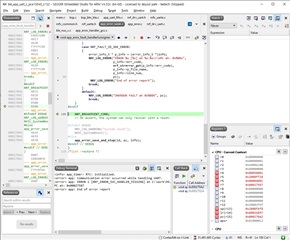Problem with setting two uart on pca10040 board
hello
I am reading the log by teraterm by connecting pca10040 board to PC via USB.
I am trying to connect 6pin and 8pin of the board to other devices through uart.
The example used ble_app_uart.
The problem occurs with NRF_BREAKPOINT_COND in uart init.
In my opinion, it seems to conflict with printf output to teraterm and 6,8 pin uart.
Is there a way to use two uarts separately?
//best regards



